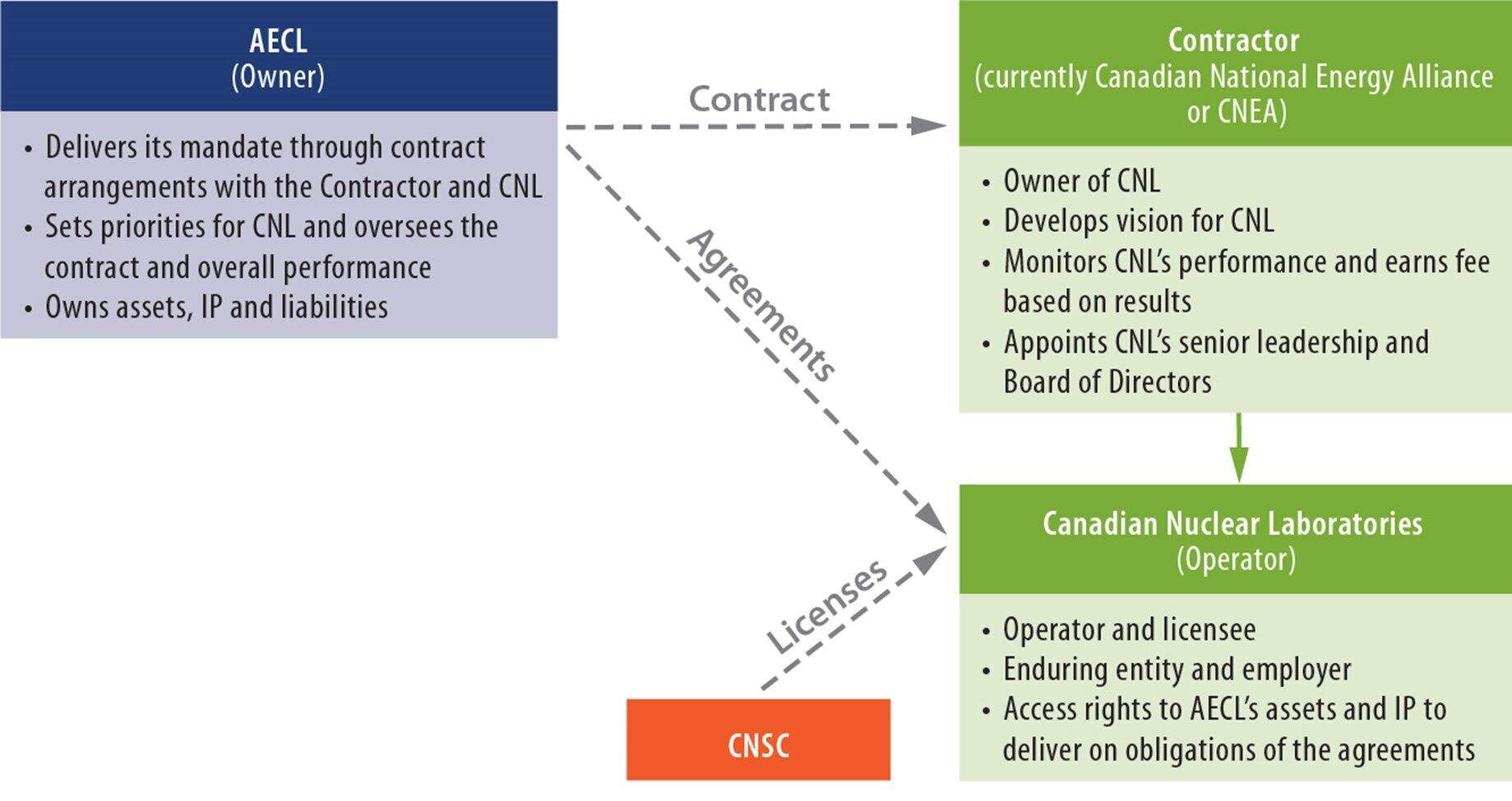AECL’s role is to:
Act as an agent of Government;
Support the Government’s development of nuclear policy; and
Set priorities for CNL, oversee the contract and assess CNL’s performance
As a federal Crown corporation, Atomic Energy of Canada Limited (AECL), receives funding from the Government of Canada to enable the development of nuclear science and technology, and to manage the Government of Canada’s radioactive waste liabilities.
Since 2015, AECL has delivered this mandate through a Government-owned, Contractor-operated model, which means that a private sector organization, Canadian Nuclear Laboratories (CNL), is responsible for managing and operating AECL’s sites. With this arrangement, both AECL (Owner) and CNL (Operator) are enduring entities with the Contractor (currently Canadian National Energy Alliance) being either renewed or replaced through a competitive procurement process.
Under the Government-owned, Contractor-operated model, AECL owns the sites, facilities, assets, intellectual property and responsibility for environmental remediation and radioactive waste management. CNL is responsible for the day-to-day operations of the sites, is the employer of the workforce and responsible for all licences and permits.
This arrangement allows AECL to use the expertise of the private sector to achieve the best possible outcomes for the decommissioning and waste management program and to transform Chalk River Laboratories into a world-class nuclear facility – all while reducing costs and risks to the people of Canada.

Roles of the Government-owned, Contractor-operated partners
AECL’s key role, acting for Government, is to set priorities for CNL and oversee CNL and the Contractor’s performance by:
- overseeing the Contractor’s compliance with terms and conditions set out in the contract with AECL.
- negotiating an annual work plan and delivering on AECL’s mandate within the funding profile approved by Government.
- Setting an annual performance plan which specifies how fees can be earned by the Contractor for its performance.
- measuring the performance of CNL and the Contractor against the annual work plan and the performance plan, the performance criteria and in relation to the other terms and conditions of the Government-owned, Contractor-operated agreements.
CNL is responsible for the day‐to‐day operations and management of all AECL sites. In that respect, it is:
- responsible for planning, delivery and execution of the work in accordance with the terms of the agreements with AECL.
- the employer of the workforce, and responsible for all aspects of labour relations.
- responsible for holding and maintaining in good standing all necessary licenses, permits and other regulatory approvals required to operate AECL’s properties and assets.
The Contractor, as the owner of CNL, is responsible for:
- appointing CNL’s management team.
- ensuring that CNL carries out its contractual obligations to AECL by employing best industry practices.
- affecting transformational change to achieve AECL’s objectives.
AECL closely monitors the plans and budgets of CNL, and makes safety, security and the protection of the environment a priority. There are several mechanisms to ensure that these areas are never compromised. This includes having the flexibility to revise plans and budgets if changes are required in order to protect the health, safety and security of people and the environment, as well as contractual provisions that allow AECL to reduce fees in instances where there are safety and security-related incidents.
